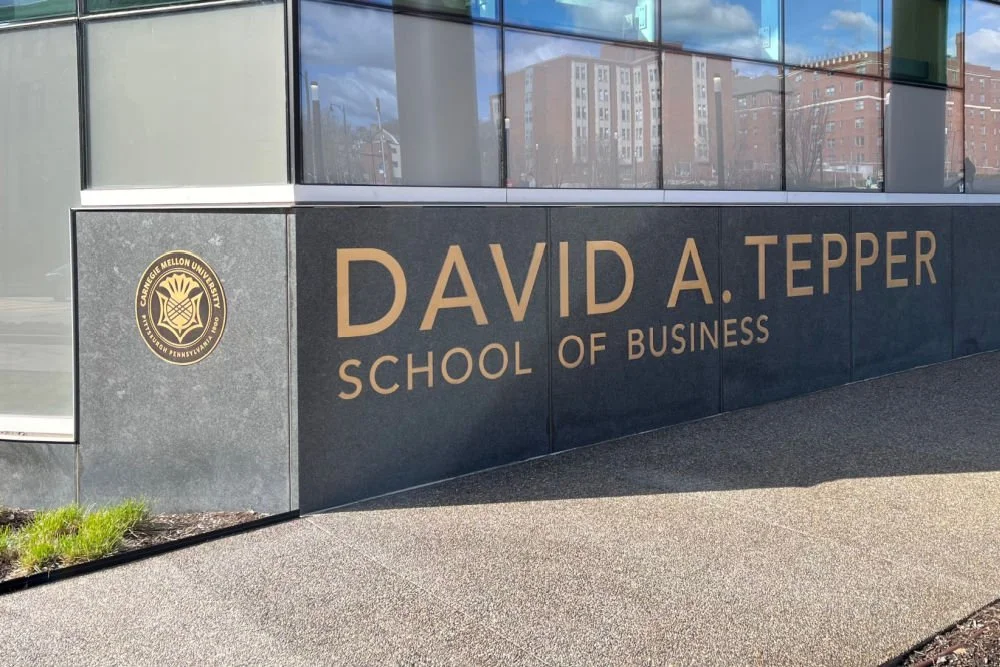So Boring Yet So Controversial. What’s the Deal With This Billionaire’s Giving?
/The Stephen A. Schwarman Building - New York Public LIbrary. ARK NEYMAN/shutterstock
Stephen Schwarzman, founder of Blackstone, the world’s largest private equity company, is the latest billionaire to sign the Giving Pledge.
In many ways, Schwarzman epitomizes one of Big Philanthropy’s many facets. He has thus far not proved to be an issues-driven mega-giver like Gates or Bloomberg. And he’s nothing like the next-gen disruptors looking to shake up the philanthrosphere. Instead, Schwarzman’s giving—which often takes the form of big checks to educational outlets with which he shares a personal or professional connection—is characterized by his predilection for betting on blue-chip institutions.
That mindset is part of what has made this financier a king of the alternative assets world, but it also makes him one of the most boring mega-givers around. Yet despite his conventional approach to philanthropy, Schwarzman keeps tripping over himself and landing in controversy after controversy, thanks to his insistence on naming rights and his seemingly-innate sense of aloofness.
According to Forbes, the 72-year old Schwarzman is worth an estimated $20.7 billion. That implies a lot of money to give away, in what may not be very much time. So it’s likely Schwarzman will ramp up his already notable giving over the coming years. For an idea of how that giving might take shape, let’s take a glimpse into Schwarzman’s philanthropic career thus far.
Below are five things we know about Stephen Schwarzman’s giving:
1. He’s Not Very Creative
If there is a main undercurrent to Schwarzman’s giving, it is education. Like other billionaires who’ve ascended to great meritocratic heights, Schwarzman credits the education he received growing up for his life-changing financial success. First, there was Abington High School in Philadelphia, a public school which Schwarzman credits with preparing him for life at Yale. Schwarzman graduated Yale (as a member of the notorious Skull and Bones society) in 1969, and quickly matriculated at Harvard Business School before graduating in 1972.
Schwarzman has given generously to his three alma maters over the years (more on that below). He also gave $100 million to Tsinghua University in China to endow the Schwarzman Scholars program. Schwartzman’s gift aims to help thaw US and Western/China relations over time, by educating 10,000 international students at Tsinghua by 2050. It remains to be seen whether a scholarship program will reduce tensions that are continuously heightened by issues such as the trade war, a totalitarian social credit system, the imprisoning of 1 million Muslims in re-education centers, and the latest pandemic (which is likely not the last). Yet that is Schwarzman’s stated goal.
A more cynical analysis of the gift might conclude that it has more to do with the fact that China’s sovereign wealth fund invests in Blackstone’s funds, and even purchased shares in the company’s IPO. Schwarzman’s business trips regularly take him to China, which is where the idea for Schwarzman Scholars was born. Schwarzman scholars may be a creative approach to a massive geopolitical issue, or it may be clever business strategy, or perhaps a blending of the two. According to Thomas Clements, Global Public Affairs at Blackstone, Schwarzman “has devoted considerable time, energy and capital (more than $1 billion) to philanthropic causes that he believes will have a transformative impact on society. His major gifts have attempted to offer creative solutions to pressing challenges, including the ethical considerations of artificial intelligence and rising tensions between the East and West.”
2. He’s Surprisingly Controversial
Despite his lack of creativity, Schwarzman has managed to find himself ensnared in controversy after controversy.
In the late 1990s, Schwarzman donated $17 million to Yale, on the condition that he obtain naming rights to the freshman dining commons. Yet before the transaction took place, it emerged that the gift was actually structured as a contribution to one of Blackstone’s investment partnerships on Yale’s behalf. So, by the time Yale received any money, there was a risk that the investment might decrease in value (it could also increase, of course). Yale decided not to trade its naming rights for a speculative investment, and Schwarzman revoked the gift entirely. Schwarzman and Yale still remain on good terms, and he has continued to support the university, including a $150 million gift in 2015 to build a high-tech student life and cultural center. (This time Schwarzman did secure the naming rights. At the time of the announcement, The Schwarzman Center was the second-largest single gift in the university’s history).
In 2018, Schwarzman gave Abington High $25 million to support a renovation and build a new Science and Technology Center. As per usual, the gift was contingent on naming rights, along with various other strings attached, which angered many parents and alumni. The ensuing uproar led to Schwarzman pulling back on the naming rights while still distributing the gift.
And of course, there was the 60th birthday fiasco. In 2007, as the Great Recession loomed, Schwarzman threw himself a multi-million-dollar 60th birthday bash, featuring A-list celebrities, performances by Rod Stewart and Patti LaBelle, and the birthday boy himself making an arrival on-stage via helicopter. Later, with the Great Recession in full-swing, details and photos of the lavish party were splashed across major newspapers and digital publications as an example of Wall Street’s greed during a time of economic upheaval. The outcry was so pronounced that the New Yorker magazine labeled Schwarzman ‘private equity’s designated villain.’
Schwarzman’s mea culpa was to donate $100 million to the New York Public Library. Yet even the mea culpa—which included naming rights to NYPL’s flagship building on Fifth Avenue—led to further controversy, as many New Yorkers cringed as a billionaire’s name was chiseled into the facade of one of their great public institutions. Worse, NYPL’s planned renovation of its newly named Stephen A. Schwarzman Building—entailing plans to gut century-old bookstacks—drew sharp criticism from Pulitzer-prize winning authors, preservationists and politicians alike. The library ultimately scrapped its plans in 2014, when it was revealed that the renovation costs would exceed the $300 million price tag initially set.
3. He Writes (Very) Large Checks
Schwarzman’s giving is done through the Stephen A. Schwarzman Foundation, which he mostly uses as a pass-through entity when the urge to donate strikes. As the above examples illustrate, when the urge to donate does strike, Schwarzman tends to write checks with plenty of zeroes.
In addition to the eight and nine-figure gifts listed above, Schwarzman and his wife Christine have committed nearly $50 million to the Inner-City Scholarship Fund (ICSF), which supports over 8,000 Catholic students annually in Manhattan, the Bronx and Staten Island. That includes a $40 million gift in 2015, which helped launch ICSF’s “Kids Are Our Capital” endowment campaign. It also makes the Schwarzman’s the largest donors to the Catholic school system in the U.S. In his Giving Pledge letter, Schwarzman cites the system’s “proven track record of success” for drawing and sustaining his interest. According to Schwarzman, ICSF maintains a “98% high school graduation rate despite 70% of the students being at, or below, the poverty line.”
Schwarzman has also cut $10 million checks to the John F. Kennedy Performing Arts Center to expand its campus, and to the National Library of Israel to establish the Stephen A. Schwarzman Education Center. Schwarzman, a former track & field athlete, has also given millions to the USA Track and Field Foundation, to support athletes training for the Olympics and World Championships.
4. He’s Only Recently Expressed Big Ambitions to Solve Big Problems
Nothing in Schwarzman’s donor history - save for a few recent gifts - signifies any real desire to tackle a pressing global or national challenge—akin, say, to Bill Gates’ crusade to improve global health or Mike Bloomberg’s push to confront climate change. Schwarzman has thus far seemed content to give generously to legacy institutions—some of which already have large endowments. He’s a case study of the unwillingness of many of today’s wealthy givers to make big bets for social change, a problem that the Bridgespan Group has explored in detail in recent years.
The recent exceptions are the aforementioned China gift (which is debatable as to how effective it will be in its stated goal), and Schwarzman’s $350 million gift to MIT to establish the Stephen A. Schwarzman College of Computing and make MIT the first AI-enabled university in the world. The gift stems from conversations he’s been having with peers about the potential for AI to disrupt businesses of all types. Certainly, AI has the potential to become an unparalleled change-agent for all industries, and Schwarzman is right to pounce on it as a prospective issue that could have some real teeth in the not-so-distant future. Yet one large gift does not a problem solver make. Let’s see if Schwarzman stays on point when it comes to AI. His gift is certainly a strong step in the right direction, and if he continues to spearhead a movement which promotes ethical considerations for the disruptive technology, we may reevaluate our earlier appraisal that he is not issues-driven.
It’s also worth noting that Schwarzman’s brand of safe, traditional giving is hardly unusual among the far upper-class writ large. But it is notable for a Manhattan billionaire who’s so visible in an era of rising social concern. On the other hand, no one would ever accuse Schwarzman of having his finger on the pulse of society. The Wall Street billionaire’s aloofness was laid bare in 2010 when he compared President Obama’s plan to raise the tax rate on carried interest to Hitler’s invasion of Poland. Not exactly an apples-to-apples comparison, and Schwarzman later apologized (interestingly, two years later, President Obama requested Schwarzman’s assistance in brokering a budget agreement with Republicans, to which Schwarzman obliged.)
5. He Epitomizes the Emergence of Private Equity
Schwarzman is the co-founder of Blackstone, the world’s largest private equity firm (fellow co-founder Pete Peterson passed away in 2018, and leaves behind the Peter G. Peterson Foundation, dedicated to securing the nation’s fiscal health). His emergence on the global philanthropic stage exemplifies a growing trend—that being the arrival of private equity titans as the new Wall Street ‘It Crowd’ when it comes to large-scale philanthropy.
As IP has written about previously, private equity is in the midst of a major upswing. The hedge fund world is imploding, leading many institutional investors to flock to the relative stability of PE returns. Major gift announcements from the likes of Robert F. Smith also underscore this transformation, as does the ascension of private credit millionaires and billionaires, as we noted here.
What the Future May Hold
Schwarzman’s personal net worth rivals that of his hedge fund peers, and is likely to keep growing given the rapid acceleration of fundraising taking place in the private equity sphere. Having just signed the Giving Pledge, Schwarzman may soon find that giving the bulk of his money away thoughtfully and purposefully is actually more difficult than earning it was in the first place—a lesson many of his billionaire counterparts have already learned.
In Schwarzman’s Giving Pledge letter, he writes the following: “My giving has ranged from helping individuals who need it, to supporting many existing institutions I care about, and more recently, bringing to life transformational ideas and new organizations that address important societal challenges.”
That last part is the likeliest clue as to what the near-term holds for Schwarzman’s giving. He wants to support ‘transformational ideas and new organizations,’ which is exactly what 2018’s $350 million gift to MIT for AI research is all about. Of course, Schwarzman is a man singularly-focused on business and education, so expect every ‘transformational idea’ he encounters to come from those two spheres—or even more likely, the intersection of those two spheres, as the MIT gift illustrates.
If history is any indication, as Schwarzman’s giving ramps up in the coming years, we’re likely to see big checks being written to universities and educational support organizations like ICSF. We’re also likely to see more buildings with Stephen Schwarzman’s name above the front entrance. And of course, we wouldn’t bet against seeing another self-inflicted controversy or two.
Stephen Schwarzman’s approach to philanthropy may be boring, but the end results are anything but.



















